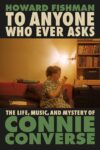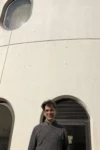In 2003 Rob Sevier and Ken Shipley (along with Tom Lunt) started Numero Group, a Chicago based archival record label that is peerless in both its selection and its design — the kind of label that immediately instills the desire to buy the entire catalogue. For this reason it was hard not to lapse into Chris Farley Show mode, just naming records and saying they are awesome. Ken and Rob were kind enough to respond to some questions over email, and I’ve indulged my Chris Farley tendency by including some of my favorite tracks below.
[The Rollers — Knockin’ at the Wrong Door, from Eccentric Soul: The Outskirts of Deep City]
Michael Schapira: This is kind of an unfair question, because I assume each release is quite distinct, but can you describe a bit how you find the music that goes into the collections? Are people bringing things to you? Are you out there actively following up on things you’ve heard or read about regional labels and scenes (is there kind of an oral history component to this, talking to people who were around when the records were first recorded)? Has the process changed over the years now that you are more established, and have the different series?
Ken Shipley: We rarely use outside producers. Most of our ideas are born internally, built upon by one or two incredible tracks. It seems like it’s always been that way, from the moment Rob first played “You Can’t Blame Me” in my apartment 12 years ago to an infectious cut found on YouTube. The series’ are sometimes more of a hindrance than a help, as we feel conflicting urges to add new titles to the existing (Eccentric Soul, Good God, Wayfaring Strangers, Cult Cargo, Local Customs) and start new ones.
Rob Sevier: All of the possible ways of tracking down a release, we use. Yes, we are actively beating the bushes and connecting the dots to hone in on the little scenes that existed and of course stumbling into stuff in the process, and yes, occasionally people bring stuff, but usually people who also collect records and are fellow travelers rather than people off the street. No matter what, much of the work of unearthing obscure music is somewhat crowd-sourced.
[Little Murray & The Mantics — Don’t Leave Me Momma, from Home Schooled: The ABCs of Kid Soul]
I was just house sitting for a friend who alphabetized his sizable record collection, but set aside a large block for all his Numero records. I think he did this not because you catalogue your records by number, but because the records all look so nice next to one another. Was a heavy emphasis on design there from the beginning?
Ken: I’ve always looked at what books and records people have in their houses when I first walk through the door. Those fat orange Impulse spines and the classic typography of Black Sparrow Press books have always stuck out from afar. I’d hoped from the beginning that our albums would bring people towards them, from across the room or in the record shop.
There is an ecology of music blogs and DJs who seamlessly present your releases alongside older stuff and music people are making today — Aquarium Drunkard, Reverberations, Chances With Wolves, to name a few. I like this much more than something like Pitchfork, which tries to hew closer towards the new. Like with Numero Group I see these people as being artists by virtue of careful curation, like making good mix tapes, but now with what is for most people an overwhelming and unmanageable set of resources. Have you ever thought about what you do as curation, as opposed to archiving or record production?
Ken: It’s an overused term, and applies more to artists than archivists. Anyone with a computer can make a playlist. Rather, we’re finding music that would never make back into the market (or in the many cases where we’re discovering unreleased material, would never reach market) without our diligence and focus.
Rob: Curation isn’t a part of how I think about what we do at all, other than in the way that the definition of curation has somehow expanded so much as to be nearly meaningless.
[Dana Westover — Beginning, from Wayfaring Strangers: Guitar Soli]
A kind of related question…you recently released a Royal Jesters collection, and that first song by Dimas III was sampled by Madlib on Beat Konducta 6 some years ago. Madlib DJd a party with the Numero Group DJs in Chicago this summer. What is your relationship to producers and DJs like Madlib? Are you sending stuff their way, are they sending stuff your way?
Rob: I don’t think its part of the creative process of any DJ or producer to be spoon-fed anything. If Madlib or anyone else samples something from our catalog they did it on their own — maybe we shared them a comp or something along those lines and after spending time with it they found something to use (I can’t even specifically think of a case where this happened, quid pro quo). If anything, the relationship runs the other way: DJ Shadow has been involved in a number of releases, Dante Carfagna, who records as Express Rising, has been involved in many more.
I’m a longtime Friend of Tom and think the box set couldn’t be greater. Am I right in saying that it was you who approached Tom Scharpling and Jon Wurster? If so, what was the motivation for doing something so new — a comedy collection, at such a huge scale (16 CDs, a hardcover book, all kinds of other stuff)?
Ken: We’d been following their incredible story for a number of years and said many times that they should compile something for their fans as a souvenir. They’d made a dozen or so compact discs on their own Stereolaffs imprint, so merely grabbing the best bits and stuffing them into four CDs seemed cheap and pointless. When I pitched them the idea, it was to make the definitive story of the Best Show’s WFMU years. I like to imagine the most perfect product and see if we can hit that, regardless of cost or absurdity.
Rob: Tom is a friend and producer of the Syl Johnson documentary along with Michael Slaboch, who produced the Scharpling & Wurster set. We are fans and friends and it would be silly not to be involved in he and Jon’s magnum opus.
[Shirley Ann Lee — All I Have To Depend On, from Songs of Light]
One thing I really like about the Eccentric Soul series is how hyper regional it is. When did you start to hear about the sheer number of these soul labels that fell by the wayside as their cities also seemed to crumble in the late 60s and 70s?
Rob: I don’t think we had an idea of the volume of such companies, just that those we did know about were of great interest and surprising creative strength.
Ken, in your first response you said you sometimes felt conflicted between developing the series and branching out in new directions (the forthcoming Ork Records collection probably seemed to some as something different from what you normally do). When you had the round number of a tenth anniversary in 2013 did you and Rob have a clearer sense of how much expansion you wanted to do?
Ken: We’ve had a manifest destiny mindset since the beginning. (Anniversaries, as a side note, have never been terribly important to us). Our goal is to be the largest AND best independent catalog company in the world, which means making left turns at right turn only intersections. Besides, making soul and R&B records every day would get tedious! There’s something deeply satisfying about diving into a vast pool of music you’re not terribly familiar with and then tearing it apart song by song, photo by photo, story by story.
[Bobby Wade — Four Walls and One Window, from Eccentric Soul: The Way Out Label]
Michael Schapira is the Interviews Editor of Full Stop
This post may contain affiliate links.







